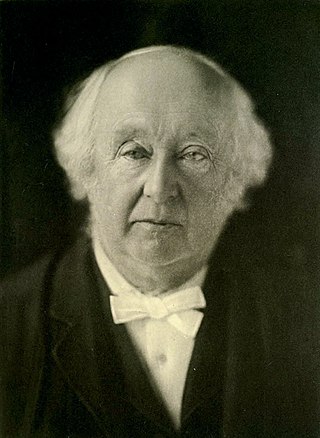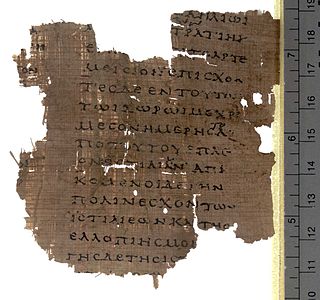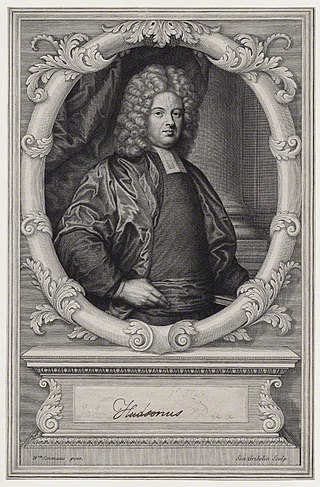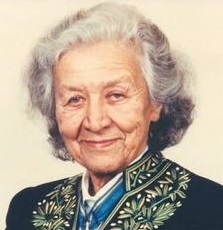Related Research Articles
Ammianus Marcellinus, occasionally anglicised as Ammian, was a Roman soldier and historian who wrote the penultimate major historical account surviving from antiquity. His work, known as the Res gestae, chronicled in Latin the history of Rome from the accession of the Emperor Nerva in 96 to the death of Valens at the Battle of Adrianople in 378, although only the sections covering the period 353 to 378 survive.

Herodotus was a Greek historian and geographer from the Greek city of Halicarnassus, part of the Persian Empire and a later citizen of Thurii in modern Calabria, Italy. He is known for having written the Histories – a detailed account of the Greco-Persian Wars. Herodotus was the first writer to perform systematic investigation of historical events. He has been described as "The Father of History", a title conferred on him by the ancient Roman orator Cicero.

In Greek mythology, Minos was a King of Crete, son of Zeus and Europa. Every nine years, he made King Aegeus pick seven young boys and seven young girls to be sent to Daedalus's creation, the labyrinth, to be eaten by the Minotaur. After his death, King Minos became a judge of the dead in the underworld.

Thucydides was an Athenian historian and general. His History of the Peloponnesian War recounts the fifth-century BC war between Sparta and Athens until the year 411 BC. Thucydides has been dubbed the father of "scientific history" by those who accept his claims to have applied strict standards of impartiality and evidence-gathering and analysis of cause and effect, without reference to intervention by the gods, as outlined in his introduction to his work.

Pericles was a Greek politician and general during the Golden Age of Athens. He was prominent and influential in Ancient Athenian politics, particularly between the Greco-Persian Wars and the Peloponnesian War, and was acclaimed by Thucydides, a contemporary historian, as "the first citizen of Athens". Pericles turned the Delian League into an Athenian empire and led his countrymen during the first two years of the Peloponnesian War. The period during which he led Athens, roughly from 461 to 429 BC, is sometimes known as the "Age of Pericles", but the period thus denoted can include times as early as the Persian Wars or as late as the following century.

Alcibiades was an Athenian statesman and general. The last of the Alcmaeonidae, he played a major role in the second half of the Peloponnesian War as a strategic advisor, military commander, and politician, but subsequently fell from prominence.

Jovian was Roman emperor from June 363 to February 364. As part of the imperial bodyguard, he accompanied Emperor Julian on his campaign against the Sasanian Empire. Julian was killed in battle, and the exhausted and ill-provisioned army declared Jovian his successor. Unable to cross the Tigris, Jovian extricated his troops from enemy territory by making peace with the Sasanids on humiliating terms. He spent the rest of his eight-month reign traveling back to Constantinople. After his arrival at Edessa, Jovian was petitioned by bishops over doctrinal issues concerning Christianity. He died at Dadastana, never having reached the capital.

Benjamin Jowett was an English tutor and administrative reformer in the University of Oxford, a theologian, an Anglican cleric, and a translator of Plato and Thucydides. He was Master of Balliol College, Oxford.

The History of the Peloponnesian War is a historical account of the Peloponnesian War, which was fought between the Peloponnesian League and the Delian League. It was written by Thucydides, an Athenian historian who also served as an Athenian general during the war. His account of the conflict is widely considered to be a classic and regarded as one of the earliest scholarly works of history. The History is divided into eight books.
Agis II was the 18th Eurypontid king of Sparta, the eldest son of Archidamus II by his first wife, and half-brother of Agesilaus II. He ruled with his Agiad co-monarch Pausanias.

The Histories of Herodotus is considered the founding work of history in Western literature. Although not a fully impartial record, it remains one of the West's most important sources regarding these affairs. Moreover, it established the genre and study of history in the Western world.

Ancient Greek literature is literature written in the Ancient Greek language from the earliest texts until the time of the Byzantine Empire. The earliest surviving works of ancient Greek literature, dating back to the early Archaic period, are the two epic poems the Iliad and the Odyssey, set in an idealized archaic past today identified as having some relation to the Mycenaean era. These two epics, along with the Homeric Hymns and the two poems of Hesiod, the Theogony and Works and Days, constituted the major foundations of the Greek literary tradition that would continue into the Classical, Hellenistic, and Roman periods.

Scribonia was the second wife of Octavian, later the Roman Emperor Augustus, and the mother of his only biological child, Julia the Elder. Through her youngest daughter she was the mother-in-law of the Emperor Tiberius, great-grandmother of the Emperor Caligula and Empress Agrippina the Younger, and great-great-grandmother of the Emperor Nero.

Friedrich Gottlob Haase was a German classical scholar. He was born in Magdeburg on 4 January 1808.

John Hudson, English classical scholar, was born at Wythop, near Cockermouth in Cumberland.
Marcellinus Comes was a Latin chronicler of the Eastern Roman Empire. An Illyrian by birth, he spent most of his life at the court of Constantinople. His only surviving work, the Chronicle, focuses on the Eastern Roman Empire.

Jacqueline Worms de Romilly was a French philologist, classical scholar and fiction writer. She was the first woman nominated to the Collège de France, and in 1988, the second woman to enter the Académie française.
Praxiphanes a Peripatetic philosopher, was a native of Mytilene, who lived a long time in Rhodes. He lived in the time of Demetrius Poliorcetes and Ptolemy I Soter, and was a pupil of Theophrastus, about 322 BC. He subsequently opened a school himself, in which Epicurus is said to have been one of his pupils. Praxiphanes paid special attention to grammatical studies, and is hence named along with Aristotle as the founder and creator of the science of grammar.

Saturninius Secundus Salutius was a Roman official and Neoplatonist author. A native of Gaul, he had a successful career as a provincial governor and officer at the imperial court, becoming a close friend and adviser of the Emperor Julian. Salutius was well versed in Greek philosophy and rhetoric, and had a reputation for competence and incorruptibility in office. He authored a Neoplatonic religious treatise titled On the Gods and the Cosmos, in support of Julian's pagan reaction against Christianity.
Richard Crawley was a Welsh writer and academic, best known for his translation of Thucydides's History of the Peloponnesian War.
References
- Greek text: H.S. Jones & J.E.Powell, Thucydidis Historiae (Oxford, 1942), Volume 1.